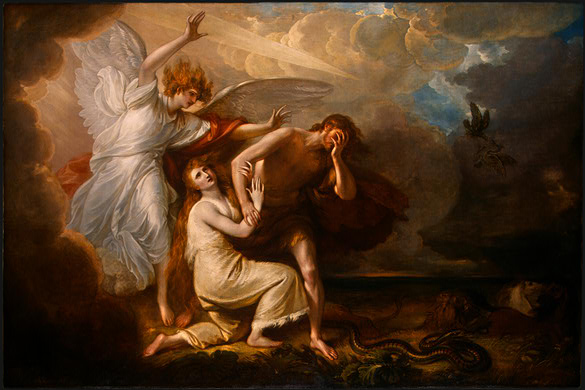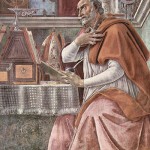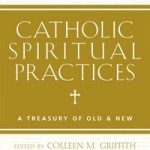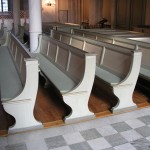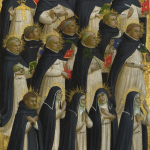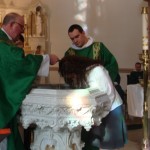The post on judgement and culpability has (terrifyingly) crested 300 comments (but I probably deserved that). I’ll be reading through them and making notes tomorrow, but I won’t be responding until later in the week, since there’s a highly relevant lecture tomorrow night that I’d like to hear first. And DC area folks may want in.
The Dominican House of Studies is holding a series of talks on the Four Last Things for the four Sundays of Advent. (Advent is an anticipatory season, but, in addition to being a remembrance of the anticipation of the birth of Christ, it’s also meant to sharpen our longing for Christ’s return, so that’s the focus of the talks). Tomorrow’s lecture is titled “Judgement” and that link goes to the Facebook event with full logistic details.
I went to last week’s lecture (“Death”) but will miss the last two in the series (“Heaven” and “Hell”). I’m quite glad I made it up to Catholic University last week, since the friar who was lecturing touched on a facet of the story of Genesis that I’d never noticed before. When Adam and Eve are kicked out of the garden, God doesn’t intend their expulsion solely as punishment:
Then the Lord God said, “See, the man has become like one of us, knowing good and evil; and now, he might reach out his hand and take also from the tree of life, and eat, and live forever”— therefore the Lord God sent him forth from the garden of Eden, to till the ground from which he was taken. He drove out the man; and at the east of the garden of Eden he placed the cherubim, and a sword flaming and turning to guard the way to the tree of life. (Gen 3:22-24)
I had seen this passage before, and I had assumed that Adam and Eve were essentially on a trial run in the Garden. If they resisted temptation for long enough, eventually they would be allowed to eat from the Tree of Life, but, since they flunked the test, God didn’t want them sneaking around to claim the prize. But what the Dominican brother pointed out is that, in the text, God only proscribes the Tree of Knowledge of Good and Evil. When Eve speaks to the serpent, she says they are free to eat from any tree except that one.
What the lecturer concluded was that people were naturally mortal, even in the Edenic state, but that God extended the grace of immortality to them through the fruit of the Tree of Life (woo, Eucharistic foreshadowing, etc!). The reason that they “shall surely die” as the result of their disobedience is that their disobedience causes God to withdraw his supernatural graces and to restore them to their natural, mortal state.
The friar went on to say that, although we might think the ultimate goal is to return to the Garden and eat again from the Tree of Life, we’re clearly not going to take on a sword-wielding angel in single combat. So, since we cannot come to the Tree, the Tree of Life came to us, but, to reach us, it suffered a sea-change, into something rich and strange. Christ on the cross is the new Tree of Life, and that fruit of that tree is what will restore to us our former graces.
I’d never heard this Old Testament-New Testament connection made before, so I’m quite excited to see tomorrow’s lecture on Judgement and to be able to reflect on it before responding to some of your comments (with priority going to David and Jay). If you’d like to listen the Dominican House lecture, they’ve uploaded the audio here. The exegesis I’ve glossed above was just one strand of a great lecture that was peppered with more jokes than I expected (including a very funny one about Franciscans).
Oh, and last week’s lecture gained new relevance this morning, when my “Read the Catechism in a Year” email arrived. We’re up to various comments on angelology, and today’s excerpt discussed the fallen angels: ” It is the irrevocable character of their choice, and not a defect in the infinite divine mercy, that makes the angels’ sin unforgivable.” Humans live in time and are subject to change, so this contrast with the angels helps to explain why we were so quickly shunted away from immortality. It is an act of mercy to not calcify someone in zer sin, but to give him/her the flexibility to change and turn away from their choice.

